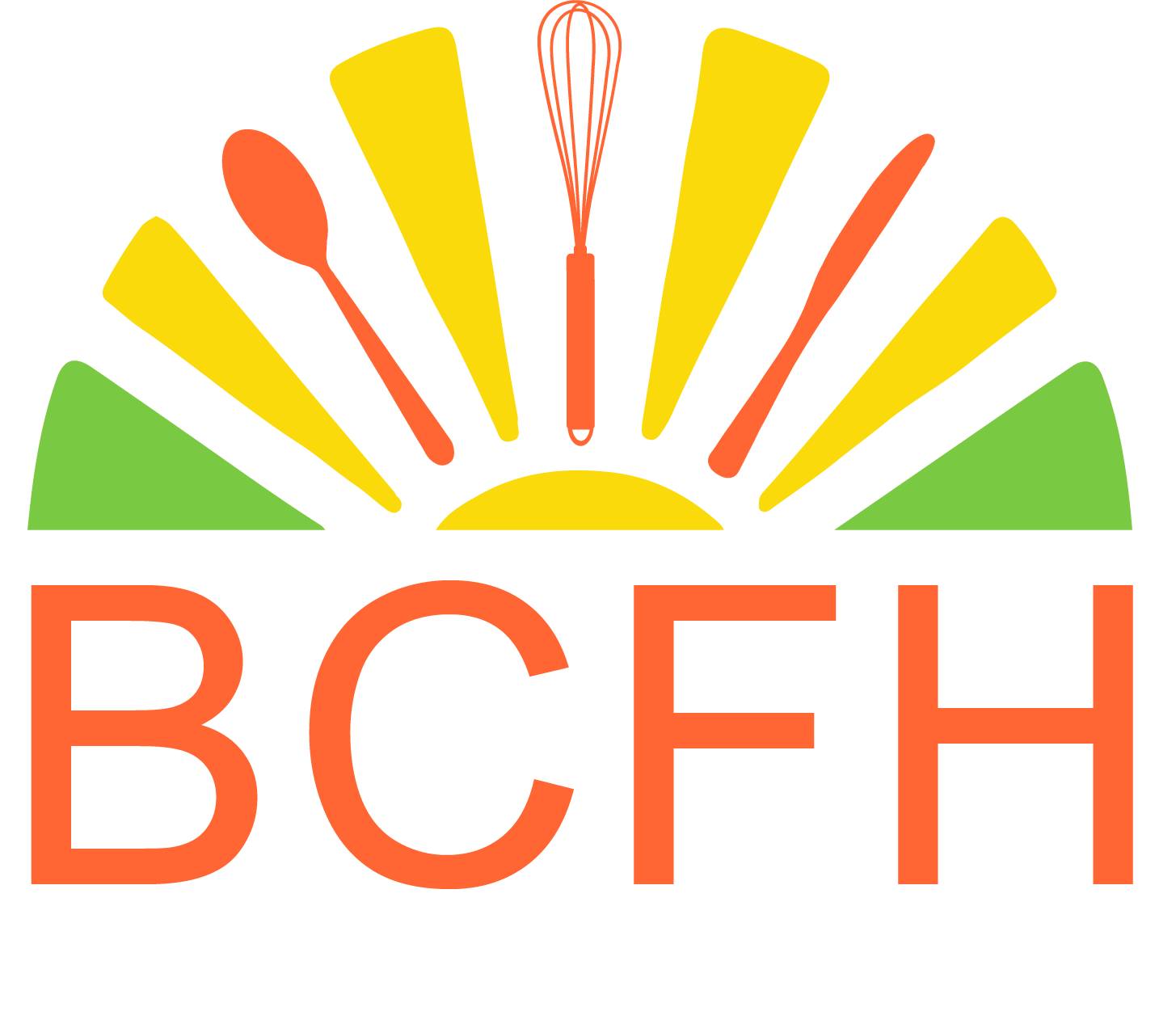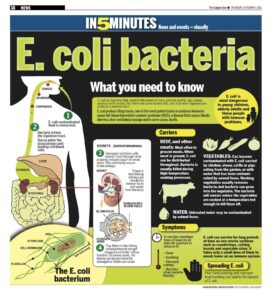Food Borne Illness – E. coli
Food-borne illness and prevention is a critical topic in health.
A massive outbreak of E.coli (1) among parents, caregivers, food handlers and especially young children in Calgary has left a number of people distraught. For children under five, or people in immune-compromised situations, E. coli can be life-threatening.
We trust our food is safe. It is the duty of the food handlers to ensure this trust is not broken.
The legal requirements for each province vary and the Alberta program on food safety is not mandatory. https://www.foodsafety.ca/laws-requirements/by-location/alberta
The website above mentions the possibility of fines, but neglects to mention other outcomes such as complete loss of business and moral values .
Here are my personal top tips for Food Borne Illness and Prevention, gleaned from many years of teaching the topic.
- Keep RAW food away from COOKED food. Cross contamination is dangerous.
If raw meat drips on cooked meat the result can be containmation and food poisoning. If the cutting board is not washed between uses, pathogens such as E. coli can remain on the board. - Wash vegetables and fruits well. Vegetables can be sources of E.coli if they are grown in soil with manure and not washed thoroughly.
- Keep hot foods hot and cold foods cold.
If you need more specifics, the temperature range at which food pathogens thrive is between 4 degrees and 60 degrees Celsius.
Remember 2-4-60.
Do not leave potentially hazardous foods out between 4 and 60 degrees Celsius for longer than 2 hours. Or in Fahrenheit – 2 hours between 40 degrees Fahrenheit (refrigerator) and 140 degrees Fahrenheit (above lukewarm, but not boiling).
- Food borne pathogens love warmth, low-acid food, carbohydrate rich foods and time.
An example is milk. A big jug of milk stored in the wall of the fridge and left at room temperature for 15 minutes a time may become a seething mass of pathogens in 120 minutes.
- Be obsessive about washing your hands thoroughly every time after you use the toilet.
I’m not an epidemologist in any way, but I have this basic understanding: E. coli is mostly caused by contact with pathogens and faeces of animals and people. Do not be afraid to ask – how long has this food been at room temperature? Who handled it before here?(2)
This is a raw beginning to food safety, food borne illness and prevention. Food handlers need to educate themselves and their employees thoroughly by checking out online courses (BC has one available by correspondence – it is not free, and it is well worth the cost).
ttps://www.foodsafe.ca/courses/level-1.html
British Columbia has a wide-reaching food safe program available to food handlers including schools. Today keeping food safe is more important than ever as services are hired out and we have little control over who has touches what we eat and drink. A textbook linking food handling to safe sex was popular in home economics classes, and its second edition, complete with Oxford comma, “Food, Sex, and Salmonella”(2) has been available since 2008. You can read up to 89 pages online to get a flavour of Dr. David Waltner-Toews’ engaging and frightening take on getting sick from food. (Please note – check your local libraries first before buying the book. It may already be available).
Waltner-Toews is a veterinary epidemologist at the University of Guelph, and possibly best known for his columns in Harrowsmith, some of which have been republished in book form. He has worked on a wide range of health, environmental and international development issues. Please try to find the new edition, and take heed of what we all can do to prevent food-borne illnesses.
https://www.foodsafe.ca/courses/level-1.html
Waltner – Toews, D. (2008). Food, Sex, and Salmonella. Dundurn Press.

